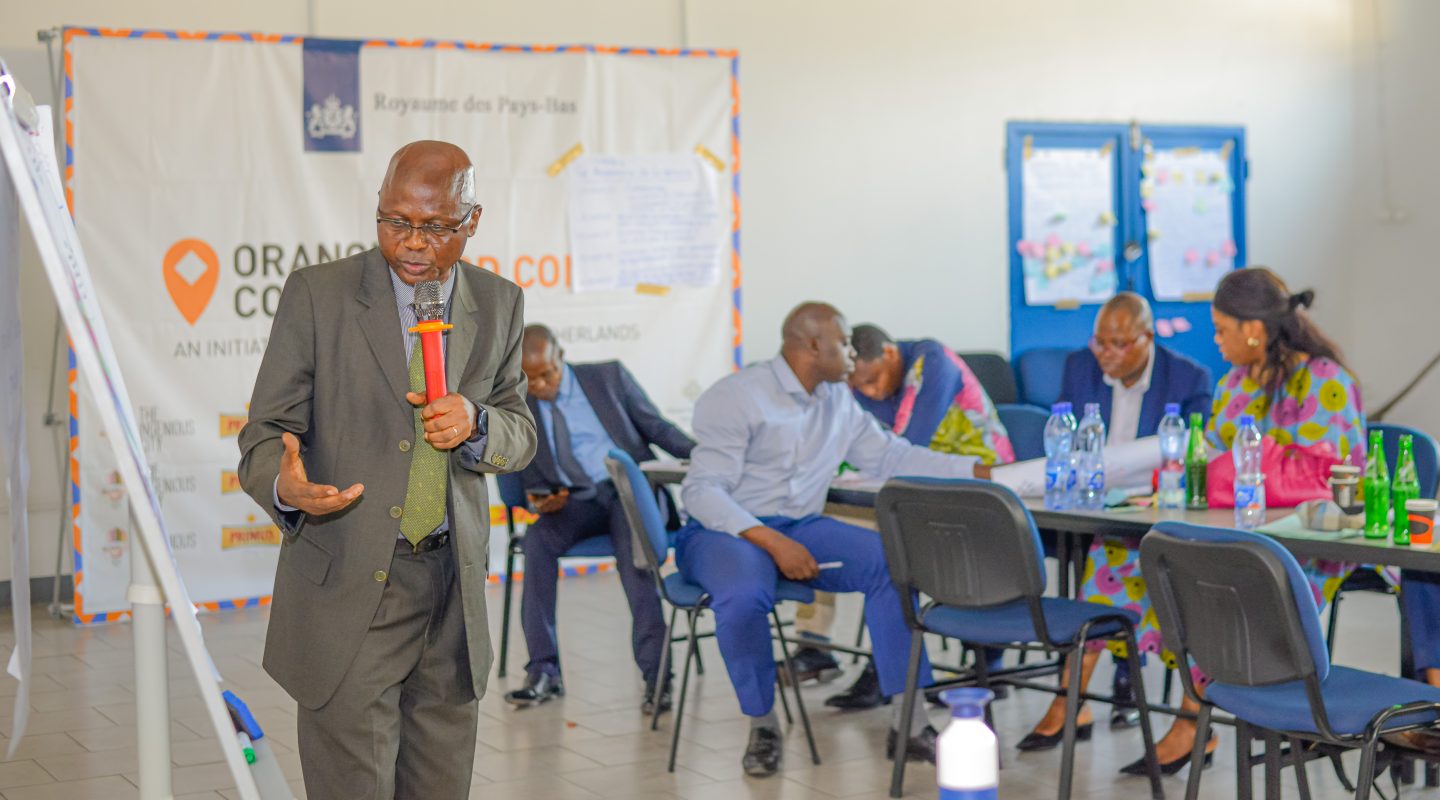Empowering our educational partners to innovate for change
At Erasmus Centre for Entrepreneurship – as part of Erasmus University Rotterdam – our mission is to create positive societal impact. We do this by developing entrepreneurial competencies and fostering innovation through research and education activities.
People often ask us: “what does it mean to create positive societal impact?” Lately, impact has become a buzzword, at times misused, to indicate leaving a (positive) mark on the world. Through our knowledge creation, valorisation, and capacity-building activities, at Erasmus Centre for Entrepreneurship we empower our partners to make a change for their communities and beyond. Our recent work in the Democratic Republic of Congo (DRC) offers the perfect example of this.
Between November 2021 and August 2022, in collaboration with MDF, we organised a training and knowledge-sharing programme for and with seven higher education institutions in Kinshasa (UniKin, UPN, UCC, UPC, ISIPA, IFASIC and ESMK) on the topic of entrepreneurial education. The programme was financed by the Netherlands Enterprise Agency (RVO). Through two training modules of one week each, participants gained basic and advanced knowledge on how to design and implement a course on entrepreneurship. During the first module and in-between trainings, the participants created a (pilot) course to embed in their regular education. Additionally, they formulated a strategy for the creation of their own centre for entrepreneurship, running research and education activities for entrepreneurial students, as well as leading and shaping the local entrepreneurship ecosystem. The latter especially allows the universities to position themselves as entrepreneurial changemakers in the economic and social landscape of the country.
The DRC has a troubled history of ethnic wars and economic exploitation, the consequences of which continue to be felt to the present day. While war is now mostly confined to the Eastern region of Kivu, where a UN Joint Human Rights Office has been trying to maintain peace since 1996, dire economic and social conditions are vexing the rest of the country. Although DRC is an extremely rich country due to its natural resources, according to the World Bank, it is one of the top five poorest countries in the world.

Today, DRC counts around 90 million inhabitants, mostly concentrated in its capital Kinshasa (17 million) and a few other urban centres. Over two-thirds of its population are young, 80% of which are unemployed or engaging in the informal economy with low levels of social and economic security. With an annual population growth of 3.1%, the country is expected to grow to over 278 million inhabitants by 2050. With job opportunities already lacking, this demographic boom might in turn lead to more poverty and unemployment. But what if these new generations will not end up seeking employment, but instead creating it, for themselves and for others? That is when entrepreneurship comes into play.
The DRC government has identified entrepreneurship as a way to boost job creation and economic growth. The Parliament has just decreed the new Startup Act, a legal framework designed by the Ministry for SMEs and Entrepreneurship in cooperation with the Dutch Ministry for Foreign Affairs and the Netherlands Enterprise Agency to strengthen the entrepreneurship climate for startups. This is not only about changing regulations, though, but also about inspiring younger generations and preparing them for entrepreneurial success. Higher education institutions have a crucial role in it, empowering students with the necessary competencies, i.e., knowledge, skills and mindset to act upon opportunities, and transform them into financial, cultural and social value, which is at the essence of entrepreneurship (FFE-YE, 2012). By involving the Congolese Ministry of Higher Education from the start of the project, we enabled the participating institutions to strengthen their relations with the Ministry in the process of accrediting their entrepreneurship education activities.

The (higher) education system in DRC is now under pressure to innovate quickly and prepare the ground for future economic growth. This requires commitment and investments in knowledge and skills. M. Eustache Muhanzi, DRC State Minister for SMEs and Entrepreneurship, indicated that this project was the first, necessary knowledge and expertise incubation around entrepreneurship education. The seven higher education institutions involved in this project have the responsibility to put this work into practice, multiplying this knowledge, but also leading the transition to a more entrepreneurial education system. At Erasmus Centre for Entrepreneurship, we are extremely proud of their developments and are confident they have what it takes to make this change happen.
Do you want know more about our international projects or are you also looking into how to make the education at your organisation more entrepreneurial? Send us a message at education@ece.nl!
